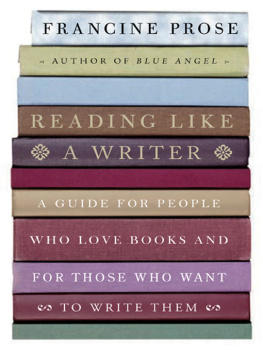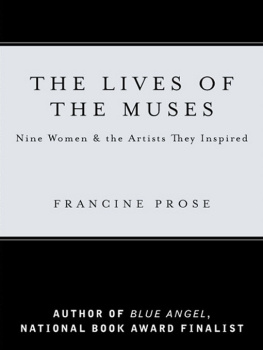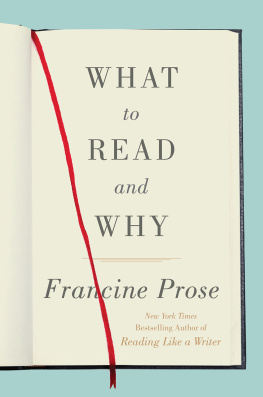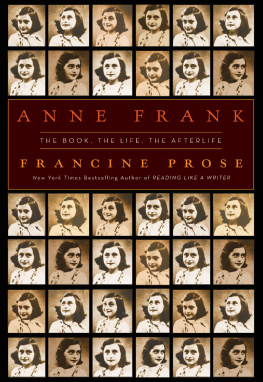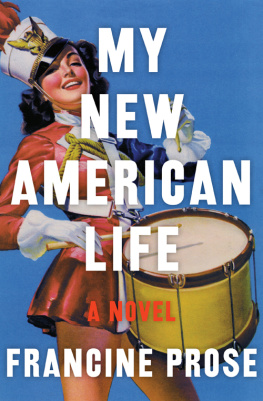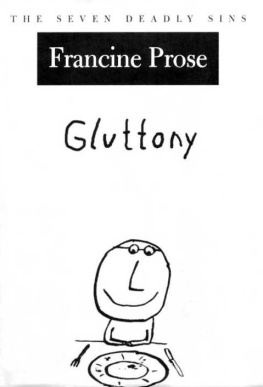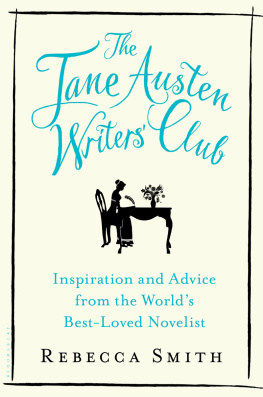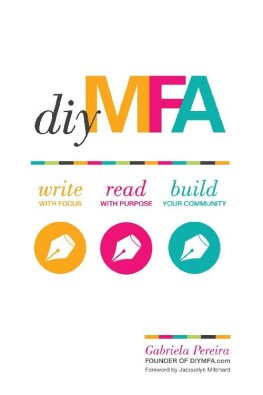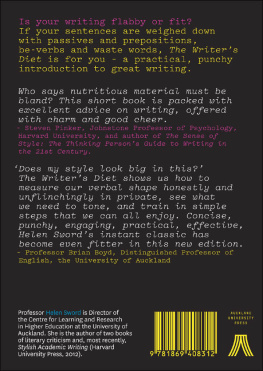CAN CREATIVE WRITING BE TAUGHT?
Its a reasonable question, but no matter how often Ive been asked, I never know quite what to say. Because if what people mean is: Can the love of language be taught? Can a gift for storytelling be taught? then the answer is no. Which may be why the question is so often asked in a skeptical tone implying that, unlike the multiplication tables or the principles of auto mechanics, creativity cant be transmitted from teacher to student. Imagine Milton enrolling in a graduate program for help with Paradise Lost , or Kafka enduring the seminar in which his classmates inform him that, frankly, they just dont believe the part about the guy waking up one morning to find hes a giant bug.
What confuses me is not the sensibleness of the question but the fact that its being asked of a writer who has taught writing, on and off, for almost twenty years. What would it say about me, my students, and the hours wed spent in the classroom if I said that any attempt to teach the writing of fiction was a complete waste of time? Probably, I should just go ahead and admit that Ive been committing criminal fraud.
Instead I answer by recalling my own most valuable experience, not as a teacher but as a student in one of the few fiction workshops I took. This was in the 1970s, during my brief career as a graduate student in medieval English literature, when I was allowed the indulgence of taking one fiction class. Its generous teacher showed me, among other things, how to line edit my work. For any writer, the ability to look at a sentence and see whats superfluous, what can be altered, revised, expanded, or especially cut is essential. Its satisfying to see that sentence shrink, snap into place, and ultimately emerge in a more polished form: clear, economical, sharp.
Meanwhile, my classmates were providing me with my first real audience. In that prehistory, before mass photocopying enabled students to distribute manuscripts in advance, we read our work aloud. That year, I was beginning what would become my first novel. And what made an important difference to me was the attention I felt in the room as the others listened. I was encouraged by their eagerness to hear more.
Thats the experience I describe, the answer I give people who ask about teaching creative writing: A workshop can be useful. A good teacher can show you how to edit your work. The right class can form the basis of a community that will help and sustain you.
But that class, as helpful as it was, was not where I learned to write.
LIKE most, maybe all, writers, I learned to write by writing and, by example, from books.
Long before the idea of a writers conference was a glimmer in anyones eye, writers learned by reading the work of their predecessors. They studied meter with Ovid, plot construction with Homer, comedy with Aristophanes; they honed their prose style by absorbing the lucid sentences of Montaigne and Samuel Johnson. And who could have asked for better teachers: generous, uncritical, blessed with wisdom and genius, as endlessly forgiving as only the dead can be?
Though writers have learned from the masters in a formal, methodical wayHarry Crews has described taking apart a Graham Greene novel to see how many chapters it contained, how much time it covered, how Greene handled pacing, tone, and point of viewthe truth is this sort of education more often involves a kind of osmosis. After Ive written an essay in which Ive quoted at length from great writers, so that Ive had to copy out long passages of their work, Ive noticed that my own work becomes, however briefly, just a little more fluent.
In the ongoing process of becoming a writer, I read and reread the authors I most loved. I read for pleasure, first, but also more analytically, conscious of style, of diction, of how sentences were formed and information was being conveyed, how the writer was structuring a plot, creating characters, employing detail and dialogue. And as I wrote I discovered that writing, like reading, was done one word at a time, one punctuation mark at a time. It required what a friend calls putting every word on trial for its life: changing an adjective, cutting a phrase, removing a comma, and putting the comma back in.
I read closely, word by word, sentence by sentence, pondering each deceptively minor decision that the writer had made. And though its impossible to recall every source of inspiration and instruction, I can remember the novels and stories that seemed to me revelations: wells of beauty and pleasure that were also textbooks, private lessons in the art of fiction.
This book is intended partly as a response to that unavoidable question about how writers learn to do something that cannot be taught. What writers know is that, ultimately, we learn to write by practice, hard work, by repeated trial and error, success and failure, and from the books we admire. And so the book that follows represents an effort to recall my own education as a novelist and to help the passionate reader and would-be writer understand how a writer reads.
WHEN I was a high school junior, our English teacher assigned us to write a term paper on the theme of blindness in Oedipus Rex and King Lear. We were supposed to go through the two tragedies and circle every reference to eyes, light, darkness, and vision, then draw some conclusion on which we would base our final essay.
It all seemed so dull, so mechanical. We felt we were way beyond it. Without this tedious, time-consuming exercise, all of us knew that blindness played a starring role in both dramas.
Still, we liked our English teacher, we wanted to please him. And searching for every relevant word turned out to have an enjoyable treasure hunt aspect, a Wheres Waldo detective thrill. Once we started looking for eyes, we found them everywhere, glinting at us, winking from every page.
Long before the blinding of Oedipus and Gloucester, the language of vision and its opposite was preparing us, consciously or unconsciously, for those violent mutilations. It asked us to consider what it meant to be clear-sighted or obtuse, shortsighted or prescient, to heed the signs and warnings, to see or deny what was right in front of ones eyes. Teiresias, Oedipus, Goneril, Kentall of them could be defined by the sincerity or falseness with which they mused or ranted on the subject of literal or metaphorical blindness.
It was fun to trace those patterns and to make those connections. It was like cracking a code that the playwright had embedded in the text, a riddle that existed just for me to decipher. I felt as if I were engaged in some intimate communication with the writer, as if the ghosts of Sophocles and Shakespeare had been waiting patiently all those centuries for a bookish sixteen-year-old to come along and find them.
I believed that I was learning to read in a whole new way. But this was only partly true. Because in fact I was merely relearning to read in an old way that I had learned, and forgotten.
We all begin as close readers. Even before we learn to read, the process of being read aloud to, and of listening, means that we are taking in one word after another, one phrase at a time, that we are paying attention to whatever each word or phrase is transmitting. Word by word is how we learn to hear and then read, which seems only fitting because it is how the books we are reading were written in the first place.

